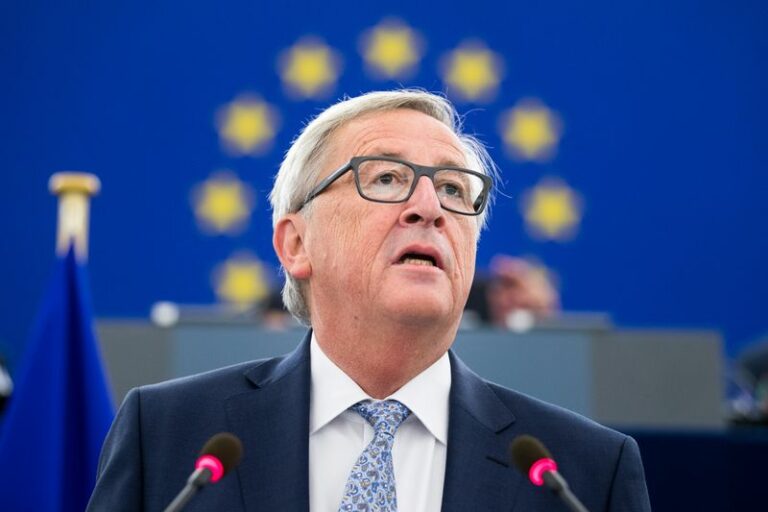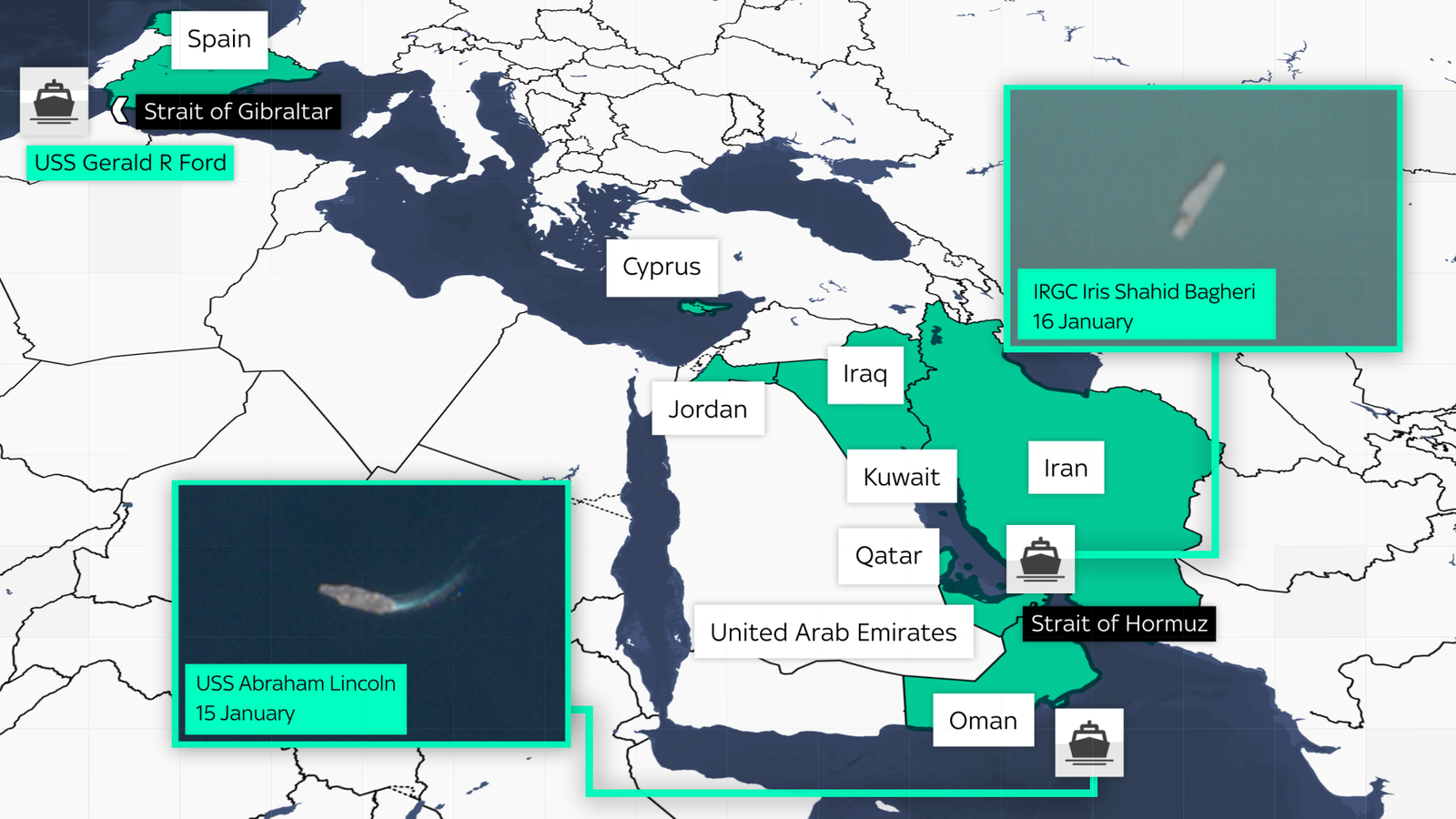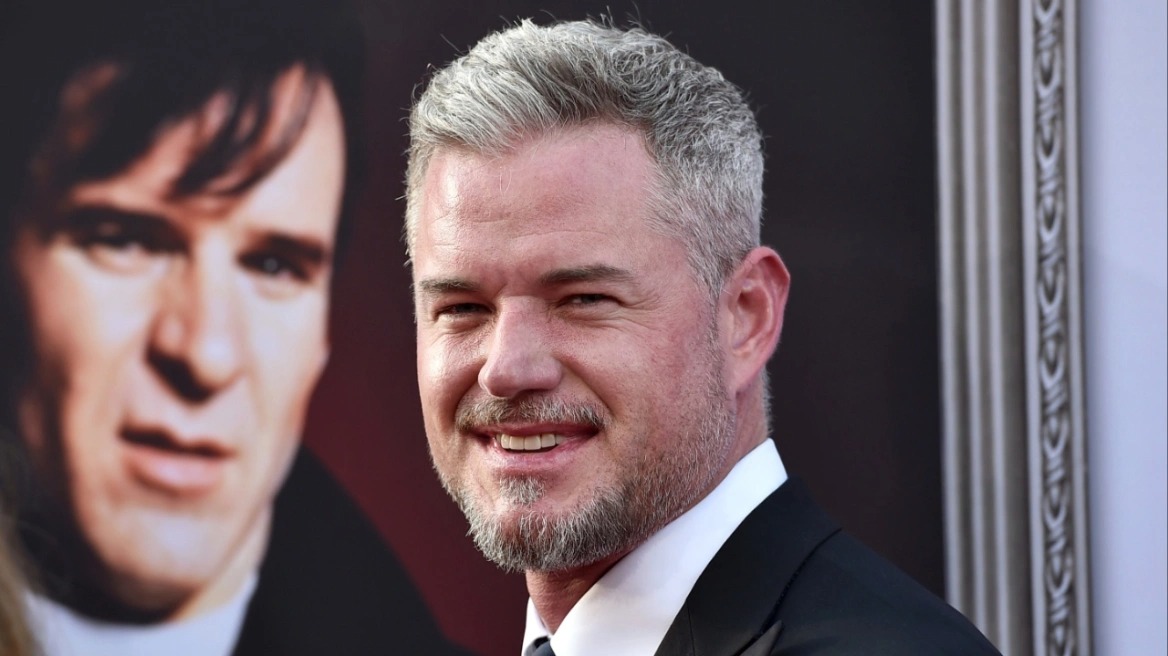European Commission chairman Jean-Claude Juncker will take stock of the European Commission’s achievements to date in next week’s much anticipated European Parliament plenary.
Eight months before the European elections, Juncker will kick off the debate in his fourth and last “State of the Union” speech in plenary session on Wednesday morning.
Juncker is expected to outline the impact of the Commission’s work in its ten priority areas and unveil what the Commission intends to achieve in the run-up to the EU elections.
Political group leaders will assess the Commission’s work and set out what they want the EU27 to deliver on before May 2019.
The State of the Union address is just one highlight of next week’s plenary.
Greek Prime Minister Alexis Tsipras will be participating in the Future of Europe debate with MEPs and Juncker, on Tuesday morning, the ninth EU leader to do so and with EP president Antonio Tajani will also take part in a joint press press conference after the debate.
The next EU head of state or government to address the House will be Estonian Prime Minister Jüri Ratas, at the October I plenary session in Strasbourg.
Another highly anticipated debate will be that on the rule of law in Hungary which will be followed by a vote on whether the EU must act to defend its values.
Hungary’s Prime Minister Viktor Orbán will attend the session and will present his views at the beginning of the discussion.
The Civil Liberties Committee concluded that Hungary is at a clear risk of such a breach and proposed that Parliament call on EU member states to trigger the procedure laid down in Article 7(1) the EU Treaty to counter a threat to the EU’s founding values, which include respect for democracy, the rule of law and human rights.
To be adopted – and subsequently sent to the Council of the EU -, the proposal for a legislative initiative, prepared by Judith Sargentini (Greens/EFA, NL) needs the backing of an absolute majority of MEPs, i.e. 376, and two thirds of the votes cast.
This would be the first time that Parliament takes the initiative of recommending that Article 7 be activated, in view of a serious threat to the rule of law, democracy and fundamental rights in a member state.
The debate is scheduled for Tuesday and the vote and a press conference will be held on Wednesday.
Meanwhile, draft copyright rules return to the plenary on Tuesday for closer scrutiny after the EP decided in July to reopen the proposal made by the Legal Affairs Committee.
Tuesday’s debate will offer all MEPs a chance to express their views and discuss what issues the European Parliament should champion during negotiations with the member states. On Wednesday, the proposal made by the Legal Affairs Committee, and the ensuing amendments to it will be put to a vote.
Also on the plenary’s packed agenda is a vote on Tuesday on establishing the EU Solidarity Corps (ECS), which will offer volunteering opportunities for young people around the EU.
Once the Council has formally adopted the text, organisations and young people can start applying for projects under the new programme.
The programme is open for participants 17 to 30 years old who can register and apply for activities that can benefit communities and are related to education, health, protecting the environment, disaster prevention, provision of food and non-food items, reception and integration of migrants and asylum seekers. The projects will be run by organisations which are recognized under a “quality label” scheme by the Commission.
An overall budget of €375.6 million euro is dedicated for the 2018-2020 period. The first call for funding is expected to be published before the end of this year. The European Commission proposed an additional budget of €1.26 billion for the budgetary period 2021-2027 for the activities covered by this new programme.
Also on Tuesday, Lebanon’s President Michel Aoun will address MEPs in a formal sitting when he is expected to address EU-Lebanon relations and cooperation, the war in Syria, migration and promoting stability and peace in the Middle East.
Aoun will be the first Lebanese head of state or government to deliver a speech at a plenary session in Strasbourg. EU-Lebanon relations are governed by an association agreement in force since April 2006. The EU is also Lebanon’s most important trading partner, accounting for around one third of Lebanese trade.
Moreover, FYROM Prime Minister Zoran Zaev will address the European Parliament in Strasbourg on Thursday morning.
Securing public and opposition support for the name change and for the next steps required for the republic’s possible accession to the EU are expected to take centrestage in Mr Zaev’s speech.
Greece and FYROM signed a preliminary agreement to rename the latter in June, after a decade-long name dispute, which has seen Greece blocking its smaller Balkan neighbour’s prospects of joining the European Union and NATO.
The proposed new name on the table is “Republic of North Macedonia”.
The outcome of the name negotiations, which has already been formally ratified by the FYROM parliament, will also be put to a referendum in the country on September 30.
The European Parliament’s Foreign Affairs Committee is expected to vote on a report assessing the 2018 Commission report on the former Yugoslav Republic of Macedonia later this autumn.
MEPs will also vote on €34m in EU aid to Greece, Poland, Lithuania and Bulgaria from the EU Solidarity Fund (EUSF) to help repair damage caused in 2017 by floods in Bulgaria and Lithuania, earthquakes in Greece and storms in Poland.
The aid includes €16,918,941 for reconstruction in Lithuania, €12,279,244 for Poland, €2,535,796 for Greece and €2,258,225 for Bulgaria. The natural disasters caused deaths and widespread destruction.
In a vote on Thursday on consumer product quality MEPs will take aim at dual standards, arguing that a product sold under the same brand and packaging should have the same composition across the EU, so as not to mislead consumers.
Tests and surveys done in several EU member states, mainly in Central and Eastern Europe, have proven that products advertised and sold under the same brand and seemingly identical packaging in fact differ in composition and ingredients, to the detriment of consumers.
These differences were found not only in food products, such as fish fingers, instant soup, coffee and soft drinks, but often also in non-food ones, including detergents, cosmetics, toiletries and products intended for babies.
If a firm sells a product EU-wide, but with compositions that differ between countries, it must not label and brand it in a seemingly identical way, says the draft text. If a manufacturer wants to customise a product, consumers have the right to know about the adjustment for each individual product.
MEPs recommend several measures at EU and national levels to tackle the “dual quality” problem, including swift cross-border cooperation and data-sharing, comparative tests, better enforcement and a clearer update of the Unfair Commercial Practices Directive, proposed by the Commission in April 2018.
In a non-binding draft resolution to be voted on Thursday, MEPs will propose ways to boost plastics recycling.
MEPs advocate creating a genuine single market for recycled plastics, and propose measures to tackle marine litter.
Incentives to collect marine litter at sea, new EU-wide standards and definitions for biodegradability and compostability, and a complete EU ban on oxo-degradable plastic by 2020 are among the proposals.
MEPs also advocate a ban on micro-plastics in cosmetics and cleaning products by 2020.
Parliament will also hold a debate and adopt a resolution on ways to address the interface between chemical, product and waste legislation, as the presence of certain chemicals can hamper recycling.
On Tuesday MEPs will vote on a resolution recommending measures to combat mobbing and sexual harassment. They said sexual harassment victims should be encouraged to report cases and perpetrators must face sanctions.
To help prevent and combat mobbing and sexual harassment in the workplace, in public spaces and political life in the EU, the EU Commission should table a draft law that includes up-to-date comprehensive EU-wide definitions of “harassment” and “mobbing”, says the draft resolution prepared by Pina Picierno (S&D, IT).
Local authorities, employers and trade unions need to better understand the barriers that victims face in reporting sexual harassment and to create safe reporting mechanisms, says the text.
To combat sexual harassment in politics, the text advocates a zero-tolerance policy and sanctions. Gender Equality Committee MEPs recommend mandatory training for all staff and members of national, regional and local parliaments, as well as of the European Parliament.
Background
One in three women have experienced physical or sexual violence during their adult lives and up to 55% have been sexually harassed, according to an EU-wide survey by the Agency for Fundamental Rights in 2014.
On the issue of Northern Ireland MEPs will advocate maintaining EU regional funding post Brexit. A non-legislative resolution says pursuing the EU PEACE and Interreg programmes for Northern Ireland, is crucial to its peaceful development.
To allow peace-building work to continue as the EU Commission intends, EU regional funding should be maintained at an adequate level post-2020,. Young people from Northern Ireland should be enabled to continue participating in Erasmus+ programmes after Brexit, it adds. The text voted on Tuesday.
MEPs will also debate a number of foreign policy issues. A resolution stressing that the EU-US relationship is the fundamental guarantor for global stability, but regretting that the US administration has chosen one-sided “America first” policy, that harms the interests of both the EU and the US and undermines mutual trust is to be put to the vote on Wednesday.
The emergency situation in Libya and the Mediterranean and the EU’s efforts to protect migrants will be debated on Tuesday with Federica Mogherini, High Representative of the Union for Foreign Affairs and Security Policy/Vice-President of the Commission.
MEPs are set to call for more robust measures to counter China’s attempts to take control of Europe’s strategic infrastructure in a vote on Wednesday.
Human rights, the rule of law and fair competition should be at the core of EU’s engagement with China, MEPs say, condemning the ongoing harassment, arrest and prosecution of human rights defenders, lawyers, journalists and other civil society members in China.
The draft resolution, to be voted on Wednesday, highlights China’s attempts to invest in Europe’s strategic infrastructure, using its “Belt and Road initiative”, which hampers free trade and gives Chinese companies a competitive advantage.
Parliament will also hold urgent debates on the following human rights, democracy and rule of law topics on Thursday: Arrests of opposition parliamentarians in Uganda, Myanmar, notably the case of jailed Reuters journalists Wa Lone and Kyaw Soe Oo and Cambodia, notably the case of imprisoned opposition leader Kem Sokha
Other topics for debate and vote include:
- Protection of individuals with regard to the processing of personal data by the Union institutions (COD), Cornelia Ernst (GUE/NGL, DE) debate Wed, vote Thursday
- Reintegration of workers recovering from injury and illness (INI), Jana Zitnanska, debate Mon, vote Tuesday
- Autonomous weapon systems, debate Tuesday, vote Wednesday
- Europe on the Move: an agenda for the future of mobility in the EU (INI) István Ujhelyi (S&D, HU) debate Wednesday, vote Thursday
- Relationships between the EU and third countries concerning financial services regulation and supervision (INI) Brian Hayes (EPP, IE) , debate Monday, vote Tuesday
- The future of pensions: fighting privatisation and strengthening public universal social security systems, topical debate, Wednesday.
















